I am a control freak. I am also a recovering addict. (These two things are not mutually exclusive.)
They say the first step of the 12 Steps is the hardest one. They aren’t kidding.
“I admit that I am powerless over my addiction, that my life has become unmanageable.”
So far, I have leaned back into Step 1 no less than 138 times. I have to continually revisit it, remind myself of it every day. After that much practice, you’d think it would get easier.
It does, but not a whole lot.
Not one time have I recited step one that it doesn’t pinch a little bit.
I hate being powerless. I hate being not in control.
As I’ve learned (and still learn every day), control is a paradox. It contradicts itself. The more you try to have it, the less of it you have. What you attempt to control soon controls you, dominating your thoughts and feelings and life.
My eating disorder and addiction to a perfect body are very much like that. (I say “are,” because I do still struggle sometimes.) At the worst point, I was so obsessed with food and my physical state that I thought of nothing else, and everything else I did think about was reframed to fit inside the construct of my obsession.
“Nice flowers. Maybe if I wear flowered prints I’ll feel less fat.”
“Great music! Makes me want to go dancing, except what will I wear to make me look thin?”
“I got an A on my Biology paper. All brains, no looks. That’s my lot in life.”
No matter what the subject matter, if it was in my life it was about my body. My life was built on a platform of self-obsession and body hate, and all things led to my disorder.
So how did I fix it? How did I change my brain to stop thinking that way?
The short answer is, “I didn’t.”
I didn’t do anything. I simply stopped trying to change what I couldn’t change.
I can hear you now.
[“The Fuck. How in the hell is that going to help me? “Stop trying to change.” PFFFTT, yeah right. I’d have an easier time trying to grow smaller feet than stop obsessing about food and my weight and my body.”]
I know, my friend. I know. Saying it that way makes it sound easy, and I know it’s not. I know YOU know it’s not. In practice, it will require work. Long, painful, frustrating, trial-and-error work. What seems an oversimplification, though, isn’t one… in reality, it truly is that simple.
When you try to be in control your life becomes out of control. In order to align your life toward what matters, you must stop trying.
Just stop trying.
…or, in the words of Step 1, “admit that you are powerless, and acknowledge that your life has become unmanageable.”
At first (and for a lot of years), my recovery from food addiction and eating disorders stalled out RIGHT THERE.
[Pronounce that, “roight thurrrrrr.”]
The Voice in my Head: “NOPE. Nope. I can’t let go. If I stop trying, I’ve quit. I’m not a quitter. If I quit I’m even more worthless than I think I am. I JUST CAN’T DO IT.”
“…if I stop trying, I’ll get fat.”
The thought of “Fat Erin” is paralyzing. It seems extreme now to say I would trade my soul to stay thin, but at the darkest part of my life I don’t know that I wouldn’t have. My biggest, most horrible fear was that I would get fat, that I would morph into the whaley, blubbery, disgustingly soft image of myself that lives in my head, and I’d consequently become the complete opposite of lovable, desirable, and wanted.
And really, that’s the REAL fear. That’s the fear that keeps me up at night, that I will be undesirable, unlovable, unwanted.
Gratefully discarded.
Unnecessary.
Worthless.
…worthless because no one would want me (who would ever want to touch a fat chick, really), and in my mind (and the mind of almost every codependent person in the universe), “being wanted” is the only way I ever know that I’m worth anything.
Read that again, because it’s a huge realization, one that kicks you in the ass and teeth at the same time:
When you’re codependent, “being wanted” is the only way you ever know that you’re worth anything.
It sounds sad. It kind of is. Maybe it makes sense to you. Codependent minds understand this presumption… we build our lives around it.
As codependent, disordered eating addicts, we can’t let go of control because if we do we’ll turn into the thing we’re afraid of, no one will want us, and that would prove that we’re worthless.
This is the cyclic, mental trap of eating disorders, Friend.
I used to think, “Damnit Erin, you’re a smart girl, you can figure this out. You can get your way out of this just THINK, WOMAN. THINK.” I felt like my food addiction and eating disorder existed because there was a hidden switch in my head that needed flipped. If I could somehow just find it and flip it, everything would make sense, my vision would clear, and I’d see in my head the very obvious, very distinctly marked pathway out of my predicament.
In a way, I was right.
I found a path out, and now I’m going to tell you how to do the same thing.
Looking back, the mental switch I was looking for wasn’t just one switch. It was a bank of switches, ten in all, that had to be flipped one at a time, and in order.
The journey is a long, winding hole of a journey. It is dark, but only at the start, until you flip those switches and turn on the light. It is a MENTAL HOLE, one we must first find the bottom of, then claw and fight our way up and out, one realization at a time. One switch at a time.
Realization 1: I want control of something I can’t truly control (weight, size, age, genetics, another person, an urge, a compulsion). I acknowledge that I cannot control the thing, and I have to accept it.
With this realization comes a whole hell of a lot of grief. Like accepting our own mortality, most of us refuse to do it. “TOO HARD. Too many feels. To scary.”
Mkay, but if you don’t accept it, you cannot change it. It will continue to own you.
Realization 2: I try to control that ‘something’ with extreme eating, diet, exercise, restriction, which results in a disordered eating cycle -slash- behavioral addiction.
The proverbial ‘mid-life crisis’ is a psychological attempt to hold off the realization of death. We attempt to control the uncontrollable with chaotic, reckless choices.
Eating disorders are our way of attempting to control what we truly, deep down know we cannot – our weight, size, and genetic content.
Realization 3: I have to accept what I am, and accept what I am not. I have no actual control over ‘the thing’ (weight, size, age, etc). I am going to be the height, size, weight, color, age I am, whether I like it or not. No amount of frantic attempt at control will make a difference.
Realization 4: I am powerless to the behavioral cycle I have created, I am powerless to that which I cannot control, and by attempting to control the uncontrollable my life has become unmanageable.
Although all of these realizations are, in one way or another, an acceptance of powerlessness, this one really dips hard into Step 1.
If you get this far, now you’re ready to do some work.
Realization 5: I am afraid to stop trying to be in control, because I fearfully believe that stop trying I will end up fat. This fear is not rational.
Realization 6: I fearfully believe that fat is the same as undesirable. The fear is irrational, and the belief is a lie.
Realization 7: I fearfully believe that being undesirable makes me worthless, because I fearfully believe that my worth depends on other people needing and wanting me. The fears are irrational, and these beliefs are lies.
Realization 8: The fear based belief that “my worth depends on other people wanting me” is a deafening sign of codependence, which is another form of addiction (addiction to approval, emotional dependence on other people), and of which one of the most distinct characteristics is the need for control.
Realization 9: (and where we’re at right now): To overcome my eating disorder, I must overcome my codependence.
Realization 10: (made with a sound mind, uncluttered with the need for control): Although I cannot control my age, weight, height, size, genetic outcome, I can FORFUCKSURE influence those things. I can make choices to positively influence the outcome, and over time (a.k.a. “patiently”) I can mold myself into the person I want to be.
Where do you land on this strip of realization switches? Which have you flipped already? Remember, if you’ve flipped switch 5 but not 1, we’ll have to start over.
HERE’S THE CATCH, and why we (most of us) stop ROIGHT THURRRR at Realization 3: The last realization (10), the one that distinguishes between influence and control, the one that opens our eyes to the power we truly and actually have, does not come right away. It comes AFTER. It comes well after – SEVEN STEPS AFTER, to be specific – the realization (3) that we have no power to change or control the things we really, really don’t like.
We have to let go of what we can’t control in order to figure out what we can.
In other words, FIRST YOU JUMP.
THEN YOU LAND.
Terrifying, isn’t it.
When we try to let go of control (especially as an addict), we freak out. We panic. We envision ourselves becoming the exact opposite of what we expect we should be. Instead of the mental-pedestal-perfect version of ourselves we’re furious to become, we imagine the fattest, most disgusting, pasty white, blubbery version of our pathetic self, hunched over a food covered table, smelly and alone, and we’re confident that is who we will become once we let go of control.
…because that’s how it works, right? All or nothing. We’re perfect or we’re worthless, there is no in between. (Psychologists call this “polarized thinking.” I do it a lot. I’d say “I do it all the time,” but that would be a polarized thought.)
Like I said, control is a paradox. The tighter we hold and the more we fight to have it, the less of it we have. The thing we try to hold on to, the thing we want more than anything else, begins to control us, instead of the other way around. We change our lives and perspective and priorities to gain something just outside our grasp (a perfect body), and before we realize what’s happening we’ve lost everything except the thing we still can’t possess.
On the subject of disordered eating and body perfection, that means we sacrifice our health, relationships, love, perspective, and time, all for the sake of getting and keeping the same figure we had when we were nineteen.
The reality is, we’re all going to die someday. Each one of us, one at a time. If we’re lucky, we are going to collapse slowly in on ourselves, shrink into giant, pink, liver spotted raisins, then die at a ripe, old age. Our vitality and vibrancy may remain, but our bodies will fall apart.
It’s biology.
There is no glamour in this reality. It’s a reality that actually feels kind of hopeless, and so we fight against it. We avoid it. We pretend it isn’t there.
It is there. I just turned 40, and I know that the most rational physical goal after age 40 is, at its core, “slight, gentle improvement, mostly repair and maintenance.” I have to accept this.
I will never be 19 again. I will never be fully tight, without stretch marks, without aching joints and slow-to-heal injuries. My body is aging, sliding slowly into a hole in the ground, and there’s nothing I can do about it.
Even with application of my very best effort, I have lost the ability to control my body.
Eating disorders, I’m convinced, are an active lie. They are our conscious way of dealing with the subconscious realization that we have no power over our physical fragility. “I know I don’t have control, but I will kill myself trying to get it.” Our disorders are a (sometimes not so) subtle way of giving reality a big “FUCK YOU,” and a defiant gesture against our powerless, physical decline.
We starve to prove that we are in control, even though we’re not. We binge because “If I’m going to go out, I’m going out HARD.” We eat until our sides ache and our back hurts and our guts scream in protest because feeling full is feeling alive, and the throbbing in our guts proves that we are not powerless.
With every overstuffed bite and skipped meal, we fight and rail and scream with violent, angry, white-knuckled, red-faced defiance against time and mortality and our failure to obtain the unobtainable.
Control, and a body that we wish we had.
Dumb.
(If you skip the beach with your kids because you hate yourself in a swimming suit, do you see what you’re giving up and why? You lose the chance to give your kids a memory they can carry into the future, all because you feel like a failure for not controlling something that you can’t control in the first place. Dumb.)
To win this battle against time, mortality, and ourselves, we have to stop trying.
Someone once told me that the struggle for control is like a tug-of-war. We’re constantly pulling, and the harder we pull the harder the thing on the other side of the rope pulls back.
To win this war, the only way to win this war, is to not fight at all.
In your mind’s eye, throw up both hands and stop pulling. Drop the rope, put two hands to God, back up two steps, and say out loud, “I’m done. I’m not going to fight anymore. Not like this.”
Instead of pulling, turn your face from the desire and walk away.
Letting go of control, quitting the fight to gain it, is terrifying, but OH MY GOODNESS IT IS THE BEST THING EVER, and it helps us to realize that it’s not control we’re fighting,
it’s fear.
We are not fighting for control, we fight to avoid what we’re afraid will happen when we let go.
When you binge and starve, you’re not fighting perfection or your lack thereof, you’re fighting the fear of what you’ll become when you don’t hit that mark.
You guys, it’s just fear.
Although it may be difficult to see it as such, this is good news.
Like an imaginary monster under the bed, fear we can deal with. Once the lights are on, the monster is drug out and named for what it really is, it no longer has control. It no longer has power over who we are.
It’s not a monster, it’s just a stinky sock, and that doesn’t get to decide how you live your life.
The body you are afraid of having shouldn’t get to decide how you live your life. So stop letting it.
Find your fear. Figure out what realization you’re refusing to accept, and why. What are you scared of? What’s the worst thing that can happen? Take that terrifying outcome, the one you want to avoid at all costs, and understand that even if it did come to pass, it does not define you. It would not get to choose who you are, change how you perceive your past, or decide who you will become.
Only you get to decide that.
Check out that series of switches and tell me where you’re stuck. Let’s figure it out.
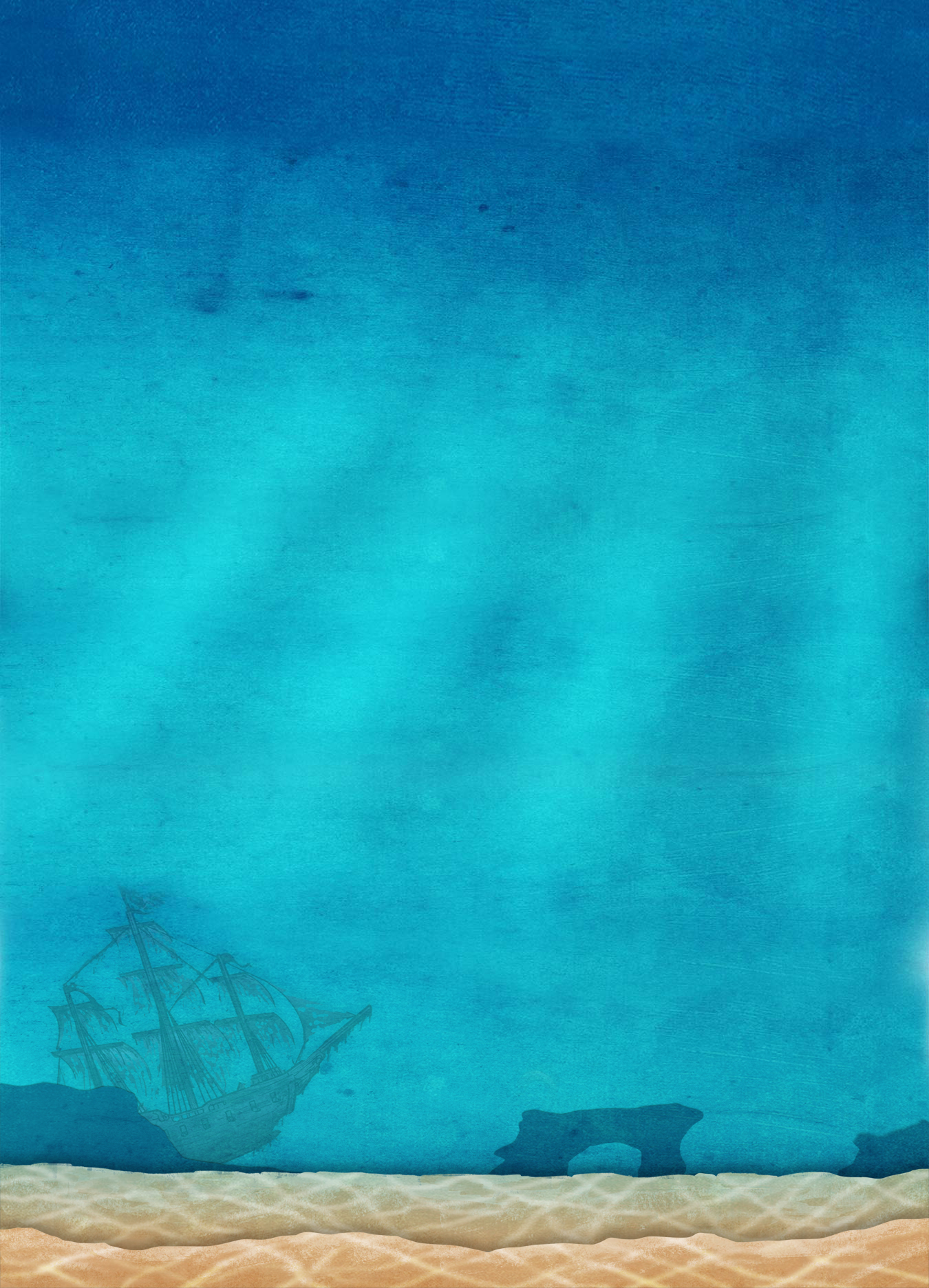
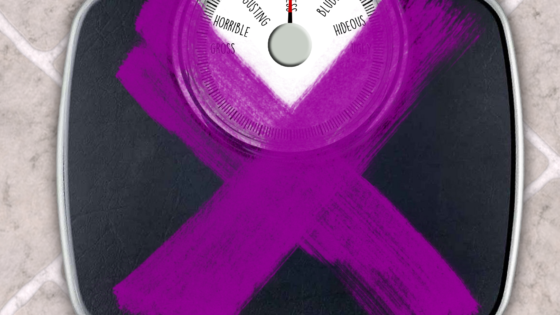
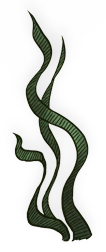

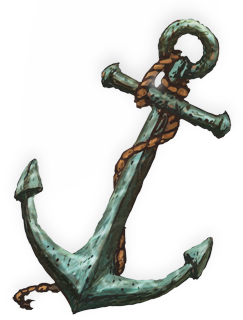




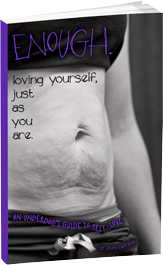


Comments ( 0 )